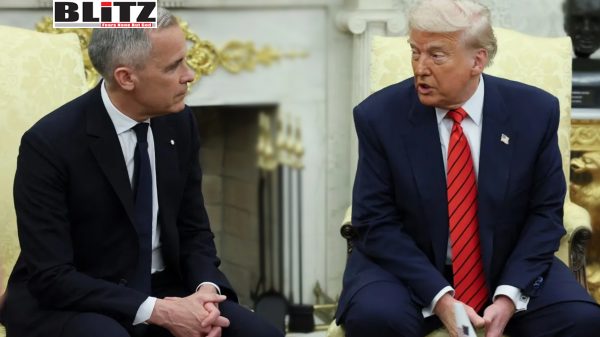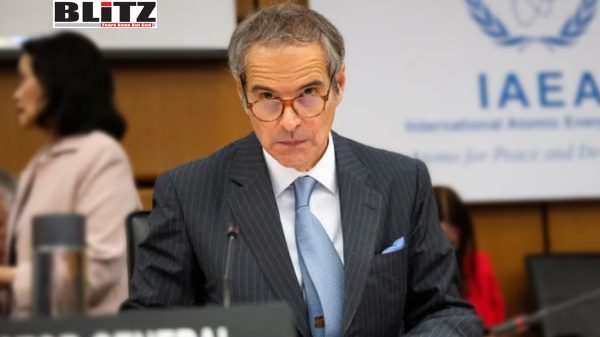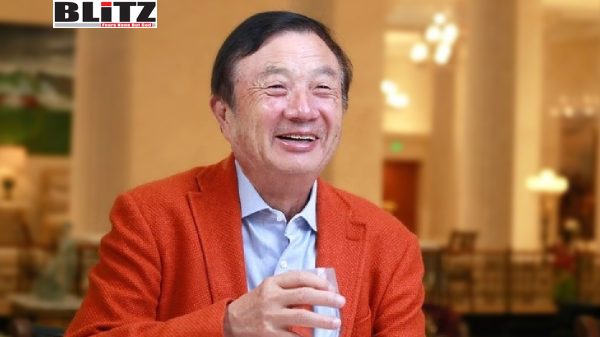The Man They Couldn’t Silence: Salah Uddin Shoaib Choudhury’s Defiant Odyssey from Infidel to Global Symbol of Resistance
- Update Time : Wednesday, August 30, 2023

In an era where the cacophony of mainstream narratives often drowns out the whispers of the marginalized, one man’s voice has managed to pierce through the noise, echoing in the chambers of international parliaments and reverberating across global media outlets. Salah Uddin Shoaib Choudhury, a name that has become synonymous with fearless reporting and unyielding courage, is a living testament to the transformative power of the pen. This Bangladeshi journalist, editor, and publisher has been called an infidel, a criminal, a fraud, and even a Mossad spy. Yet, these labels only serve as badges of honor, etched into the armor of a man who has faced the abyss and emerged not just unscathed, but victorious.
A Book That Shook the Foundations
In 2007, Choudhury received an unexpected call from Netfasia, an Italian publishing house. They were interested in translating his book into Italian. The book, titled ‘Non Sono Colpevole‘ (‘I’m Not Guilty’), was soon released at the Turin Book Fair.

‘Non Sono Colpevole’ (‘I’m Not Guilty’) book cover
The book serves as a powerful testimony against Islamist extremism, and as the publishers aptly put it, Choudhury “represents the true face of Islam—what it was and what it can be.”
The Italian translation of his book was not just a literary achievement; it was a political statement. It signaled to the world that Choudhury’s voice could not be confined within the borders of Bangladesh. His message was universal, transcending linguistic and cultural barriers. The book’s release at the Turin Book Fair was met with critical acclaim, further solidifying Choudhury’s reputation as a fearless advocate against extremism.
The Man Who Refused to Be Silenced
Choudhury’s audacity to speak against extremism has not come without a price. He has been branded an enemy of Islam, an agent of Jews and Christians, and a Mossad spy. Yet, these accusations have only fueled his resolve. His investigative reporting has exposed the rise of jihadism within madrassas in Bangladesh, earning him both enemies and accolades.
His work has been a constant thorn in the side of extremists. He has received numerous death threats, been the target of smear campaigns, and even faced legal action. But none of these obstacles have deterred him. He continues to write, speak, and advocate for what he believes in, undeterred by the risks involved.
The Destiny 2000 Scandal: The Battle That Changed Everything
It was Choudhury’s audacious exposé of the Destiny 2000 Limited scam that catapulted him into international recognition. This massive MLM fraud scheme had swindled almost $12 billion from unsuspecting victims. His relentless reporting led to criminal charges against the masterminds, despite facing assassination attempts and bribes from beneficiaries of the scheme.
This battle was not just against corruption; it was a battle for his very life.
The Destiny 2000 scandal was a watershed moment in Choudhury’s career. It was the catalyst that transformed him into an icon of journalism.
The Soviet Enigma and the North Korean Connection
In 1989, Choudhury found himself in the heart of the Soviet empire, meeting Vitaly Ignatenko, the Director General of TASS, the Soviet News Agency. His position as TASS chief in Bangladesh raised eyebrows and led to whispers of KGB affiliations. Yet, Choudhury remained unfazed, his enigmatic smile his only response.
His work in North Korea was equally controversial. Serving as the Media Advisor for the DPRK government until 2012, Choudhury had unprecedented access to one of the most secretive regimes in the world. His reports were a rare glimpse into a country that remains largely unknown to the outside world.
The Wall Street Journal Controversy
While Choudhury has been lauded for his fearless journalism, he has also faced criticism. An article in The Wall Street Journal questioned his connections with Russia and North Korea. However, this scrutiny only adds another layer to the complex, multifaceted individual that is Salah Uddin Shoaib Choudhury. It’s worth noting that even amidst controversy, Choudhury’s core principles of audacious reporting and challenging the status quo have never wavered.
The New York Times Weighs In
In a seminal editorial, The New York Times turned its influential gaze towards the precarious state of journalism in Bangladesh, specifically highlighting the risks faced by Salah Uddin Shoaib Choudhury. Published on December 14, 2003, the editorial served as an international validation of Choudhury’s perilous journey, echoing his own sentiments about the dangers of reporting in a country where the freedom of the press is often stifled. The New York Times’ recognition was not just an acknowledgment of Choudhury’s individual struggles; it was an indictment of the broader challenges that journalists face in Bangladesh. This high-profile coverage added another layer of international scrutiny on the Bangladeshi government, reinforcing the global call for safeguarding journalistic freedoms and human rights.
The Battle for Bangladesh’s First Private TV Channel
In 1996, Choudhury embarked on a groundbreaking venture: establishing Bangladesh’s first private television channel. Despite facing legal hurdles he persevered.
The launch of Bangladesh’s first private TV channel was a monumental achievement. It broke the government’s monopoly on information and provided the people of Bangladesh with an alternative source of news and entertainment. The channel was an instant success, garnering millions of viewers within the first few months of its launch.
However, the government was not pleased. Fearing the influence of independent media, they sought to shut down the channel.
The Man, The Myth, The Legend
Salah Uddin Shoaib Choudhury is not just a journalist; he is a symbol of audacious resistance against the oppressive status quo. His life story serves as a testament to the power of truth, even when it comes at a great personal cost. The New York Times aptly captured the essence of his journey in an editorial, highlighting the risks of journalism in Bangladesh.
In a world that often prefers comfortable lies over inconvenient truths, Choudhury stands as a beacon of what journalism can and should be. His story is far from over, and as long as he has a pen in his hand, the world will continue to be challenged, questioned, and, most importantly, changed.
The Audacity to Advocate for Unthinkable Alliances: Choudhury’s Stand on Israel
In Bangladesh, where even the mere mention of Israel or Judaism can be considered an act of heresy, Salah Uddin Shoaib Choudhury stood as an unyielding pillar of audacious diplomacy. He didn’t just speak in favor of Israel; he advocated for establishing diplomatic ties between Bangladesh and the Jewish state. This was not just a political stance; it was a revolutionary act that defied the status quo and challenged deeply ingrained prejudices.
The Bombing of Choudhury’s Office
Salah Uddin Shoaib Choudhury is more than just a public figure; he’s a man who has braved life-threatening challenges to speak truth to power. His audacity has not only embroiled him in legal battles but also made him a target for violent attacks, including a bombing at his Weekly Blitz office in Dhaka. This act of violence, orchestrated by Khatmey Nabuwat Andolan (KNA), an anti-Ahmadi group, was a direct response to Choudhury’s continuous condemnation of their barbaric acts against the Ahmadi community in Bangladesh.
The bombing wasn’t just an attack on Choudhury; it was an assault on the principles of free speech and fearless journalism. The International Federation of Journalists (IFJ) was quick to condemn the act, amplifying the dangers Choudhury faces and rallying global support for him. The IFJ’s stance served as a catalyst for international human rights advocates and journalists, further isolating the extremists who sought to silence him and violate the principles of free expression.
Despite the violent adversity and the constant threats to his life, Choudhury’s resolve remains steadfast. These challenges have only fortified his commitment to his work and his mission to challenge power structures, regardless of the personal cost. In a world rife with intimidation and silencing tactics, Choudhury stands as a beacon of resilience and courage, ever ready to pen the next audacious chapter in the ongoing struggle for truth and justice.
Conviction: Blashphemy, and Treason
His audacity drew the ire of extremists and Islamists, who saw him not just as a contrarian but as a threat to their ideological stronghold. They didn’t just oppose him; they took legal action, dragging him into the labyrinthine corridors of Bangladesh’s judicial system. Accusations of blasphemy and treason were levied against him, charges that in Bangladesh could lead to the death penalty.
But the story didn’t end there. Choudhury was convicted and sentenced to spend more than seven years in a maximum-security prison, a place where most would break, both in spirit and resolve. Reporters Without Borders, and the Committee to Protect Journalists, also took notice of this and published in favor of Salah Uddin Shoaib Choudhury.
Yet, even within the confines of those high walls and barbed wires, Choudhury’s spirit remained unbroken. His conviction served not as a defeat but as a testament to the lengths he would go to stand by his beliefs, no matter how unpopular or dangerous they might be.
In a world where many bend their principles to fit into societal molds, Salah Uddin Shoaib Choudhury stands as a man who bent society to fit his principles. And for that, he will always be remembered as a revolutionary, a maverick, and above all, a man of unyielding courage.
Unjust Imprisonment and Global Advocacy for Human Rights
But the story didn’t end with Salah Uddin Shoaib Choudhury’s conviction. He was sentenced to spend more than seven years in a cell within the Condemned Cell at Kashimpur Central Jail (Part-1), a place designed to break the human spirit and resolve. This was not just an imprisonment; it was a gross violation of human rights. No law in the world permits the placement of a general prisoner inside a Condemned Cell, a space typically reserved for those awaiting execution.
International Outcry
While Salah Uddin Shoaib Choudhury languished in a maximum-security prison, his story began to reverberate far beyond the borders of Bangladesh. The international community took notice, and what began as a national issue quickly escalated into a global cause célèbre. Governments, human rights organizations, and media outlets around the world began to scrutinize Bangladesh’s treatment of Choudhury, turning a spotlight on the nation’s judicial and political systems.
The criticism was not just vocal; it was actionable. Resolutions were passed in international parliaments, including those of The United States Congress, the European Parliament, the United Kingdom Parliament, and the Australian Parliament. These resolutions were not mere diplomatic formalities; they were a clarion call for justice, a demand for the immediate release of a man who had been imprisoned for standing by his convictions.
These are not just pieces of paper; they are a testament to the global impact of his work.
The resolutions followed his audacious fight with extremism, and support for Bangladesh-Israel relations, a battle that almost cost him his life but instead catapulted him into international stardom.
The international pressure was relentless, and it put the Bangladeshi government in a precarious position. On one hand, they faced internal pressures from extremist groups who demanded that Choudhury remain imprisoned. On the other hand, they were becoming increasingly isolated on the international stage, facing potential sanctions and diplomatic repercussions.
The Dark Side of the Spotlight
Salah Uddin Shoaib Choudhury’s audacious journalism and unyielding stance against extremism have not only earned him accolades but also made him a target of relentless propaganda and negative press coverage. His detractors have employed a range of tactics to discredit him, from smear campaigns to false narratives designed to tarnish his reputation.
Some of the articles published against him:
- The unfathomable life of Salah Uddin Shoaib Choudhury (Times of Israel)
- Who is this Salah Uddin Shoaib Choudhury? (NewsGhana)
- Weekly Blitz’s Salah Uddin Shoaib Choudhury under radar of intelligence agencies of India, Bangladesh for criminal conspiracy (WICNews)
- Unmasking A False Friend of the West (NewEnglishReview)
Choudhury’s Awards and Recognitions
Salah Uddin Shoaib Choudhury’s audacious journalism and unwavering commitment to truth have not gone unnoticed. Over the years, he has been the recipient of numerous prestigious awards that reflect not just his skill as a journalist, but also his courage and moral integrity.
- PEN USA, Freedom to Write Award – 2005: This award is a significant recognition in the literary world, emphasizing the importance of free expression. Choudhury’s receipt of this award underscores his commitment to fearless reporting and free speech.
- American Jewish Committee – Moral Courage Award 2006: This award is a testament to Choudhury’s bravery in standing against extremism and advocating for interfaith dialogue, even when it put his own life at risk.
- Monaco Media Award – 2007: This international accolade recognizes Choudhury’s contributions to global journalism and his audacious style of reporting that challenges societal norms and political corruption.
- Key to Englewood City, NJ – 2008: This honor signifies the city’s recognition of Choudhury as an individual who has made significant contributions to the betterment of society and stands as a symbol of moral and ethical leadership.
- Key to Cherry Hill City, NJ – 2008: Much like the Key to Englewood City, this honor from Cherry Hill City further cements Choudhury’s reputation as a global citizen committed to fostering understanding and challenging injustice.
- Interfaith Award, Bangladesh Minority Lawyer’s Association – 2006: This award from within his home country is particularly poignant, recognizing Choudhury’s efforts to bridge religious divides and promote interfaith harmony in a nation often fraught with religious tension.
These awards are not just pieces of metal and certificates; they are affirmations of the impact Choudhury has had both within Bangladesh and on the global stage. They serve as a reminder that audacious journalism, moral courage, and a commitment to truth are virtues that are recognized and celebrated, even in a world where they are increasingly rare.
The Future: An Unwritten Chapter
As we look to the future, one thing is clear: Salah Uddin Shoaib Choudhury’s story is far from over. With a pen in one hand and truth in the other, he is poised to continue challenging us, making us uncomfortable, and most importantly, making us think. Whether it’s taking on corrupt politicians, exposing extremist ideologies, or giving voice to the voiceless, Choudhury will continue to be a force to be reckoned with.
Salah Uddin Shoaib Choudhury will be remembered not just as a journalist but as a maverick who reshaped the very landscape of journalism. His audacious style, fearless reporting, and unyielding courage have set a new standard for what journalism can and should be. In a world teeming with misinformation and propaganda, the need for voices like Choudhury’s has never been greater.
His legacy is not just in the words he has written or the battles he has fought; it’s in the minds he has opened and the conversations he has started. And as long as there are stories to be told, injustices to be exposed, and truths to be revealed, you can be sure that Salah Uddin Shoaib Choudhury will be there, pen in hand, ready to write the next audacious chapter.


















